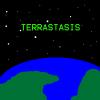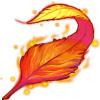Hi guys,
I'm planning on learning C++ soon so that I could eventually start learning about Graphics Programming down the road. But,
a lot of the book recommendations and materials I've found on the forum seem rather outdated, so I was wondering if anyon could recommend some good books or resources for learning C++ as a beginner that's perhaps a bit more up to date? Something that's suitable for someone new?
While I do have some experience with Python, I'm however still not a very experienced programmer and completely new to the C family of languages.
In addition, I have looked at stackoverflow's definitive book list for C++ and have browsed this forum a bit as well, but the opinions on them seem varied from person to person.
Does anyone have a book they would recommend by any chance? And I do like that there's so many tutorials on this forum, but which one would you guys recommend?









